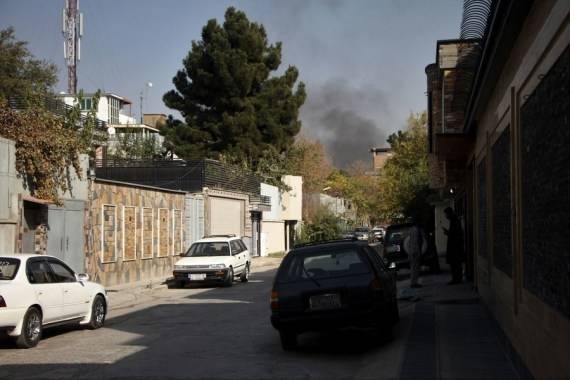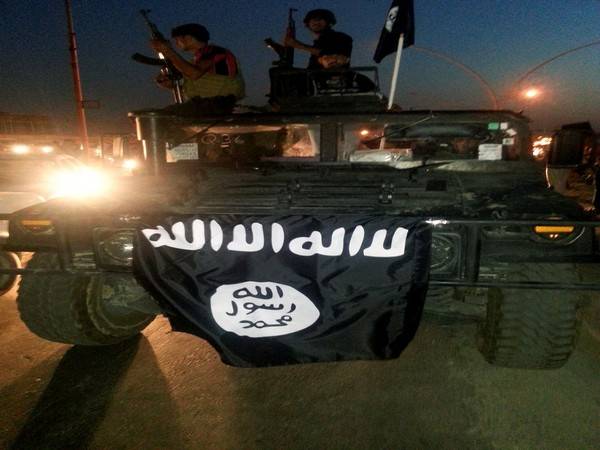Since the takeover of Afghanistan by the Taliban, ISKP has claimed 52 attacks, including 4 suicide attacks, in the country, which has resulted in over 600 casualties…reports Asian Lite News
Since the Afghan Taliban took control of Afghanistan, militant outfit Islamic State-Khurasan Province (ISKP) has claimed a string of attacks across northern and eastern parts of the war-torn nation.
In the past few weeks, ISKP has claimed 12 attacks, including suicide attacks in the provinces of Nangarhar, Kabul, Kunar and Kandahar, which resulted in over 150 casualties.
On November 2, 19 people were killed and more than 40 were injured in an attack on Afghanistan’s biggest military hospital in Kabul. Two explosions hit the entrance of the hospital followed by gun fire.
The ISKP later claimed responsibility for the gruesome attack, even declaring the names of the suicide bombers.

Earlier on October 15, the city of Kandahar was struck by suicide bombers with the Imam Bargah (a Shia mosque) being targeted. The incident led to the death of 47 people with over 70 injured. Significantly, the ISKP once again announced its role through its official propaganda arm Amaq News Agency.
They also named the two attackers as Anas al Khurasani and Abu Ali al Baluchi. On October 8, a similar suicide attack at a Shia mosque during Friday prayers in northern Kunduz city culminated in over 200 casualties.
The ISKP has also carried out a number of IED attacks at different locations across the country. On October 25, 10 people were killed in two blasts on Taliban patrolling units in Jalalabad. In another attack on the same day, an ex-government employee was killed in Jalalabad.
On October 23, three persons were killed in an attack targeting the members of Taliban in Jalalabad. On October 20, 4 persons were killed in an attack on a Taliban vehicle in Kabul.

Earlier on October 16, 2 persons were killed in Jalalabad city and on October 14, 7 persons were killed in an attack on a Taliban vehicle in Asadabad, the provincial capital of Kunar province.
In the month of September, ISKP had targeted two oil tankers using sticky bombs in Shakardara district. In the past, the group had targeted electric pylons and oil tankers as part of its economic warfare.
The Taliban has not been able to prevent these incidents but claimed to have detained ISKP leaders. In the last one month, Taliban has claimed to have arrested 250 people for their affiliation with ISKP.
Taliban local officials also claimed that many of them were prisoners who had fled from prisons across the country. The release of prisoners by the Taliban at the insistence of Pakistan has thus created this new and dangerous security threat.
Since the takeover of Afghanistan by the Taliban, ISKP has claimed 52 attacks, including 4 suicide attacks, in the country, which has resulted in over 600 casualties. Most of the attacks have taken place in Nangarhar province where at least 34 attacks by ISKP have come to notice.
Kabul has the next high number of targeted attacks followed by Kunar, Parwan, Kunduz and Kandahar in that order. The main targets have been Taliban foot soldiers and vehicles besides Shia mosques/shrines.
At this trend level, Taliban is bound to face tremendous challenge from the ISKP. Six hundred casualties in 3 months portrays a poor image of the Taliban’s ability to control the situation.
Such attacks are likely to continue, especially since the ISKP has been operating in the form of several modules which are spread over Afghanistan and do not have a centralised command. Therefore, even if the Taliban makes efforts to engage them, this would not be feasible.
The ISKP’s efforts to publish its attacks is also indicative of the fact that they are consciously generating optics to enhance their image and also to win over disenchanted members of various entities unhappy with the Taliban, including those from the Taliban itself. The ISKP’s efforts are aimed at image building and mustering support from all across.













